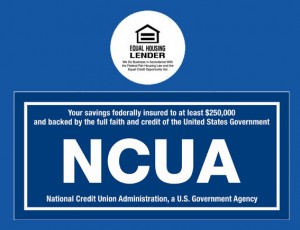The Internet: A Wonderful Place?

The internet is a wonderful place to learn, conduct business, and, at least in our opinion, a great place to shop. Over the years, we have been asked to consider offering internet access to accounts. The response has always been that it is something we will consider in the future. Our reluctance is not because we do not want to spend the money to be able to offer this convenience. Nor is it because we prefer the personal contact with our valued members, although we do. It has been our fear that there is another, darker side to the internet, one that we may not have the comparable resources to combat against. We can spend a great deal of money to purchase the best, most up to date software, with the greatest defenses, and yet it would be outdated within months of being installed. This seems to be true of all electronic products, something that everyone can relate too. Whether it is the purchase of that home entertainment system, a computer, a digital camera, or 8 track tapes years ago. You brought it home and a few weeks later it was outdated. Well in the financial services world, there are many fraudulent people trying to make our software out of date. This may not be an issue for larger firms because they can charge outrageous fees on everything to make up the difference. We cannot justify taking your money in that matter (in fact we are not sure how they can justify it).
Recently a hot word in the news regarding the internet has been something called “Phishing.” You may have heard the term, but not understand what it means. “Phishing” is a form of fraud that uses an email to obtain personal information. They send an official looking email requesting you to enter private information on the internet. The email may even look like it is from someone you know, like Bank of America, Wachovia, Citizens Bank, Citibank, etc. Just look at each of their websites and you will find a notice regarding these scams. Up until now this has only been a concern with larger banks, but recently similar scams have been reported using names you will also recognize, such as FDIC and NCUA. These organizations insure depositors of banks and credit unions. The picture above is from an email that seems like it is from the NCUA, and it requests to confirm debit card information. This false e-mail asked for the recipient to click on a link to verify their credit union account registration. If the recipient proceeded to do so, the link directed them to a false website and asked for their credit union account number and PIN, along with other personal information. Let me be clear, Pannonia or the NCUA will never request personal information via email, in fact we firmly believe that no one should ever ask for such information via email. Anyone who receives an e-mail that purports to be from NCUA and asks for account information should consider it to be a fraudulent attempt to obtain their personal account data for an illegal purpose and should not follow the instructions in the e-mail.
Another scam that occurs involves viruses or spyware. Viruses and spyware are small programs that infect your computer and do harm. These infections can occur by visiting infected websites or from harmless emails from people you know. Viruses attempt to do harm to your computer or obtain personal information from files within your computer and send them to people that created the virus. Spyware attempts to track the websites you go to, and what you type on the different pages. Doing so provides the creator access to your personal information, including user id’s and passwords.
This article is not meant to scare you regarding the internet, but to educate you on the need to exercise caution. Make sure you maintain updated virus and spyware software. We recommend McAfee (www.mcafee.com) or Norton (www.symantec.com). Also make sure passwords are not easily identifiable, including multiple characters (i.e. numbers, letters and symbols). Change your passwords on a regular basis. These simple measures can help you maintain the appropriate security of your information.
Now you understand why we pride ourselves in the personal touch we offer to our members. Some may consider it old fashioned, but we think of it as the best security to your personal information. We look forward to assisting you with your financial needs long into the future.
How to Protect Yourself Online
Maintain updated virus and spyware software. Many internet providers offer this for free to subscribers
Never provide private financial information based on an email
Do not use contact information or links in the email, use the contact information you already know
Use a variety of numbers, letters and symbols for passwords
Change passwords regularly
If you ever enter personal information, and then realize there may be an issue, contact your financial services provider so they can discuss options
If you feel that you have received a fraudulent phishing e-mail purportedly from NCUA please forward the entire e-mail message to info@pannoniafcu.org
Additionally, you can file formal complaints concerning any suspected fraudulent e-mail with the Internet Fraud Complaint Center (IFCC). The IFCC is a partnership between the Federal Bureau of Investigation, and the National White Collar Crime Center.
